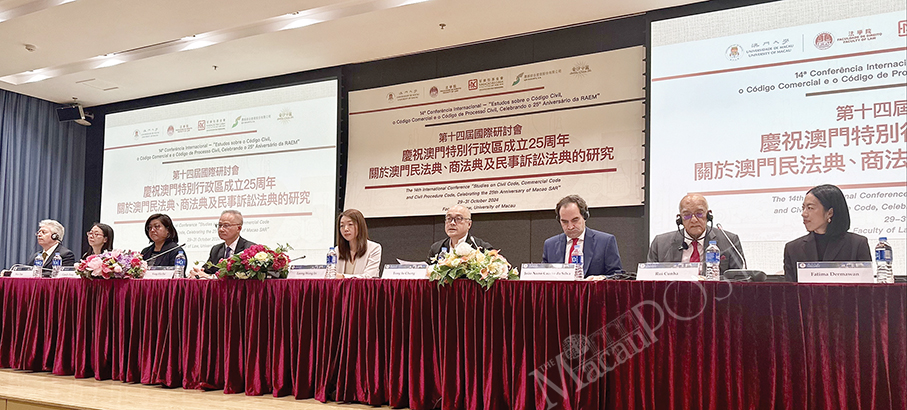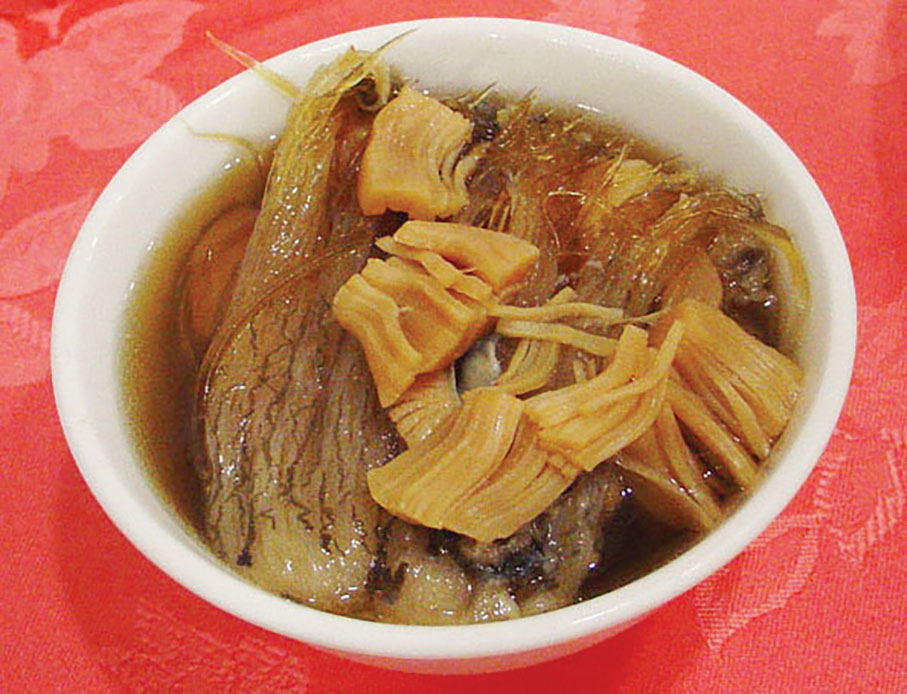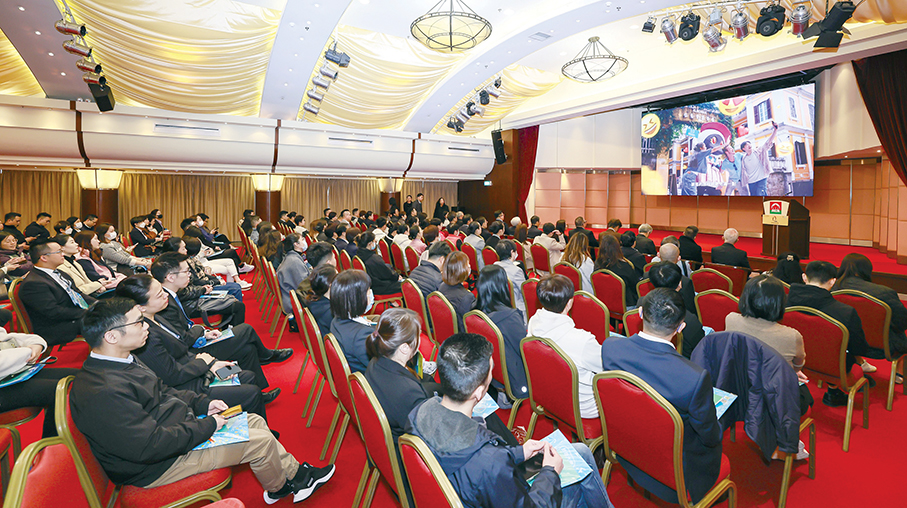With the aim of building a consolidated and sustainable legal system for Macau that can better respond to the social needs of the future, the Centre for Legal Studies of the Faculty of Law at the University of Macau (UM) launched yesterday its three-day international seminar on Macau’s Civil Code, Commercial Code and the Civil Procedure Code, during which Macau Lawyers Association (AAM) President Vong Hin Fai underlined that as a bridge between the Chinese and Portuguese legal systems, Macau’s legal culture is unique in its fusion of East and West.
The English title of the seminar is “The 14th International Conference ‘Studies on Civil Code, Commercial Code and Civil Procedure Code, Celebrating the 25th Anniversary of Macao SAR”.
“The Macau Special Administrative Region (MSAR) has not only inherited its historical traditions, but also faces the challenge of how to promote in-depth exchanges and cooperation between the Chinese and Portuguese legal professions in this new era,” Vong added.
The symposium is divided into 10 sessions, in which a number of experts and scholars from Macau, the mainland and Portuguese-speaking countries will deliver speeches on the future of Macau’s legal system, covering the latest developments in Macau’s Commercial Code as well as the challenges that the Civil Procedure Code is facing, according to yesterday’s opening ceremony.
By deepening the participants’ understanding of the legal system, the seminar aims to promote the development of Macau’s legal system and bring greater benefits to civil society.
At yesterday’s opening ceremony, Vong, UM Faculty of Law Dean Tong Io Cheng and Rui Cunha Foundation President Rui Cunha delivered their respective opening remarks. All underlined that the seminar is an important platform for Macau’s legal development.
Vong said: “We look forward to establishing closer ties and deepening exchanges with the legal professions of mainland China and Portuguese-speaking countries”.
Cunha said: “The symposium provides a unique opportunity for academics and legal professionals to share knowledge, explore ideas and suggest improvements...The importance of these three statutes as living tools cannot be underestimated, and they must continue to evolve to better respond to social, economic and technological changes”.
Tong said: “The 25 years since the establishment of the MSAR have been a period of progress in the development of the rule of law, and the legal system has gradually matured...The legal ties between Macau and the rest of the world have never been interrupted, and they have always been very close. Our legal system must keep abreast of the times to meet the challenges brought about by globalisation”.
Yesterday’s opening ceremony was also attended by Legal Affairs Bureau (DSAJ) Director Leong Weng In, as well as representatives from integrated resort (IR) operators SJM Resorts and Sands China.
China comprises four legal systems – the ones in the mainland, Taiwan, Hong Kong and Macau. While Hong Kong’s system follows Britain’s common law system, the nation’s three other systems are based on continental Europe’s codified law system, aka civil law system.

Macau Lawyers Association (AAM) President Vong Hin Fai (fourth from left), Rui Cunha Foundation President Rui Cunha (second from right), Legal Affairs Bureau (DSAJ) Director Leong Weng In (centre) and Dean of UM Faculty of Law Tong Io Cheng (fourth from right), as well as other representatives from the tertiary education institution and integrated resort operators SJM Resorts and Sands China, address yesterday’s opening ceremony for a three-day international seminar on Macau’s Civil Code, Commercial Code and the Civil Procedure Code. – Photo: Yuki Lei








